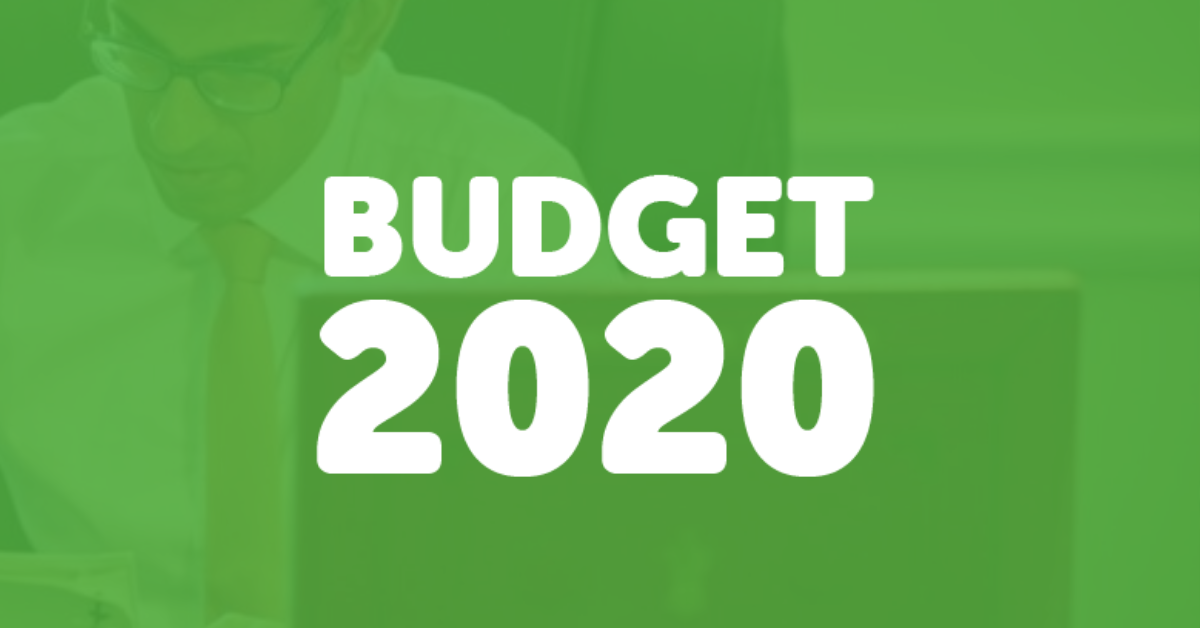Budget 2020: Key points at a glance
Chancellor Rishi Sunak has delivered his first Budget to the House of Commons, but his speech left many in the contracting sector with one question – where was IR35?
The answer was to be found buried within the full Budget document, with confirmation that “the reform will therefore be legislated in Finance Bill 2020 and implemented on 6th April 2020, as previously announced.”
Budget 2020 – summary
Now that we have established that the changes to IR35 will definitely go ahead as planned, here are the other key points of interest in a Budget very much overshadowed by the coronavirus crisis.
Coronavirus
The Chancellor announced a raft of measures to mitigate the impact of the coronavirus.
- £12 billion package of tax and spending measures including grants and hardship funds for people and businesses affected
- Statutory Sick Pay to be payable from first day’s absence and fully funded by the Government for 14 days; support also for workers in gig economy and self-employed, and relaxed conditions for those who self-isolate
- Business rates relief for the next year increased from 50% to 100% for retail businesses with rateable values up to £51,000; this relief extended to leisure and hospitality businesses as well, and further relief for small pubs
- Small businesses already eligible for 100% rates relief to receive £3,000 cash payment
- Businesses and individuals with cash flow difficulties promised ‘Time to Pay’ their taxes with a dedicated HMRC helpline.
Tax measures with immediate effect
- Lifetime limit for gains eligible for Entrepreneurs’ Relief (taxed at 10% instead of 20%) reduced from £10m to £1m for disposals from Budget day
- Duties on alcoholic drinks and fuel frozen.
Tax year 2020/21
- No changes to personal income tax allowances and rates: 2019/20 figures continue for a second year, as expected
- Increase in threshold for National Insurance Contributions from £8,632 to £9,500
- Increase in thresholds for ‘Annual Allowance pensions taper’ from £110,000 and £150,000 to £200,000 and £240,000
- Lifetime Allowance for pensions increased in line with inflation to £1,073,100
- ISA allowance remains £20,000 per year, but Junior ISA/Child Trust Fund limits rise from £4,368 to £9,000
- As announced in advance, Corporation Tax rate remains 19% rather than being reduced to 17%
- No changes announced to ‘off-payroll working’ (IR35) rules, so they will apply to larger private sector employers from 6 April 2020 as previously announced
- No change announced to new rules for reporting and paying CGT on chargeable residential property, so deadline becomes 30 days
- Employment Allowance for small businesses increased from £3,000 to £4,000 of Employers’ NIC
- Research & Development expenditure credit increased from 12% to 13%
- Structures and Buildings Allowance increased from 2% to 3%
- Changes to Principal Private Residence Relief announced in the 2018 Budget.
Tax measures coming into effect later
- VAT ‘Domestic Reverse Charge’ on construction services, deferred from 1 October 2019, confirmed for introduction on 1 October 2020
- VAT zero-rating to apply to digital versions of newspapers and books as well as printed versions from 1 December 2020
- Abolition of VAT on women’s sanitary products from 1 January 2021
- VAT on imports to be dealt with by ‘postponed accounting’ (on the VAT return, not on the docks) by businesses from 1 January 2021
- Stamp Duty Land Tax surcharge of 2% introduced for non-resident buyers of UK property from 1 April 2021
- Tax relief on ‘red diesel’ removed for most sectors but retained for agriculture, home heating and rail in April 2022
- New plastic packaging tax for manufacturers in April 2022, as well as a shift in Climate Change Levy from electricity to gas.
This Budget replaced the one delayed by the general election, and that means it will be the first of two this year, with a second Budget scheduled for the Autumn.




